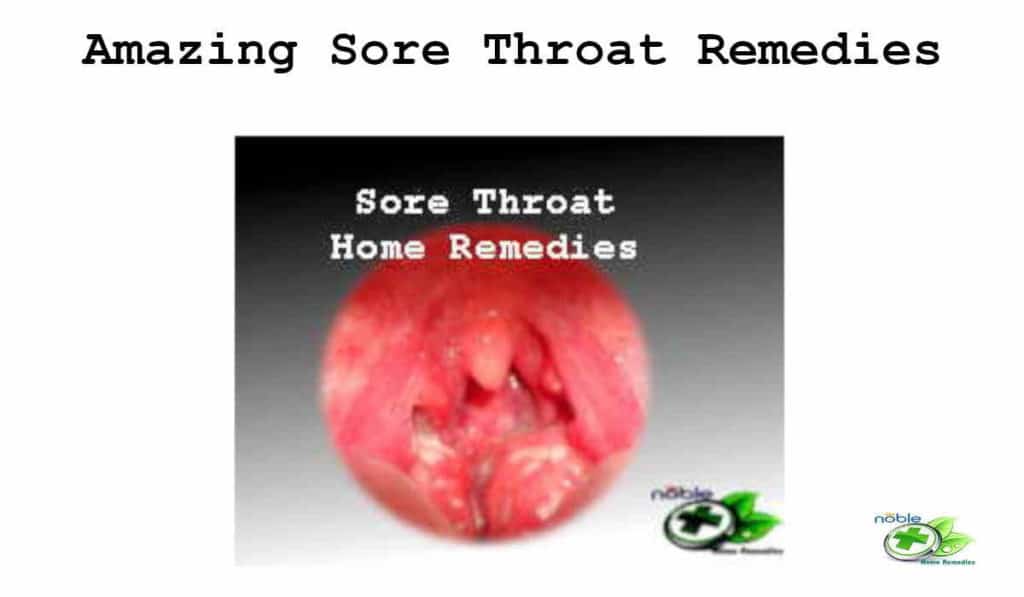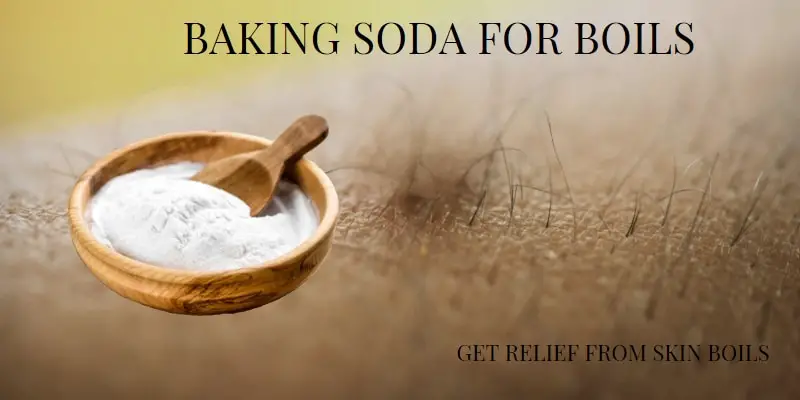10 Best Essential Oils for Cough: Effective Ways to Use Them
There are many effective home remedies for cough. In this article, we are specifically covering the uses of essential oils for cough. Several types of research and studies support essential oil effectiveness. So, let us understand the effectiveness of relieving cough and underlying health conditions.
Let us see a study involving 46 people. All had severe upper respiratory tract infections (URTI) symptoms. In this study, one group was treated with aromatic herbal preparations. The other is the placebo group.

So, what matters here is the immediate response of aromatic herbal treatment to URTI.
Beware of adulterated essential oils. It may cause high risks and adverse responses. Always look for authentic and genuine essential oils that are of the utmost importance.
We also have great cough home remedies other than essential oils. You may wish to look at them too, at natural cough medicine for adults.
What are the Cough Triggers?
There are many trigger points for us to cough. Triggers for coughs are mostly environmental, such as the flu, cold, and other health conditions. Refer to the causes of cough for a detailed discussion on this topic. The acute cough lasts for about 3 days. A chronic cough takes much longer. Chronic cough is associated with other health problems.
10 Best Essential Oils for Coughs
Now, let us look at what essential oils can contribute to stopping coughing. Essential oils are actually considered an alternative therapy for cough. It is not considered a medical treatment. You need to be a little bit cautious when using essential oils for coughing and other reasons. There are no guidelines on how to use essential oils from approved organizations.
Here are the 10 best essential oils that show effectiveness in calming coughs.
1. Eucalyptus essential oil
This eucalyptus oil comes on top of the list for home uses for health reasons. Eucalyptus has antibacterial properties and is a natural expectorant. The key compound cineole of eucalyptus essential oil is a cough suppressant. Eucalyptus oil also helps to boost our body’s immune system.
It is claimed that eucalyptus oil makes our blood vessels thinner. Therefore, making a way for more oxygen to flow to the lungs while you are coughing.
According to a study, eucalyptus oil has been traditionally used. Particularly treating respiratory tract disorders such as:
- Bronchitis
- Sinusitis and
- Pharyngitis and
- Congestion and phlegm
This is why several pharmacy products contain eucalyptus oil:
- Treating coughs and cold
- congestions
- clearing phlegm and
- including cough drops and vapor rubs
Vapor rubs with eucalyptus oil are useful for children suffering from a cough. It is more useful for coughs and congestion at nighttime. So those children can get a good night’s sleep.
This study from PubMed says that vapor rubs are effective and favorable for children. It gives them fast relief from cough and congestion. Also, a good relief for sleeping difficulty caused by respiratory tract infections. The vapor rub may produce a bearable, mild irritant.
For inhaling purposes, use 12 drops of eucalyptus oil in a ¾ cup of water. Repeat three times a day for better results in reducing cough symptoms.
You can simply rub eucalyptus oil mixed with any carrier oil on the chest and throat to calm the cough.
Among the over-the-counter vapor rubs, Vicks VapoRub is highly used by people. Vicks VapoRub contains a good amount of eucalyptus oil. Extensively used by people for coughs and colds. Vicks VapoRub is available online.
You can make your own vapor rub at home using eucalyptus oil.
2. Peppermint essential oil
The key compound of peppermint is menthol. The menthol compound makes peppermint the best solution for cough and congestion. You may notice the inclusion of menthol in respiratory condition care products.
Menthol of peppermint is a natural expectorant. It helps to loosen phlegm in the respiratory tract. It also clears the nasal sinus with its cooling effect. Consequently, it calms the cough caused by congestion and nasal sinus.
Peppermint being the antibacterial agent, can heal flu and colds faster. When your flu and cold heal, the associated cough also naturally disappears.
In some cases, the untreated sore throat condition leads to a dry cough. The cooling effect of peppermint negates the cough caused by a sore throat. Peppermint is also an antitussive and hence effective in helping with bad cough fits.
Here is a quick list of antiseptic and antispasmodic effects of peppermint:
- Reduces upper respiratory congestion caused by phlegm
- Reduces sinusitis
- Clears throat infections
- Curing flu
- Cures cold
- Calming asthma and bronchitis
All of the above are the underlying health conditions for cough. Reducing symptoms of these health conditions eventually eases your coughs.
3. Rosemary essential oil
Rosemary is a herb that can be grown in your garden easily. Like the eucalyptus, the rosemary herb is also rich in cineole compounds.
Effective in breaking mucus build-up and reducing inflammation.
Helps in stopping cough fits. It calms the trachea muscles to give relief to the respiratory tract.
Rosemary essential oil has antimicrobial and antioxidant properties. These properties boost the immune system of our body.
Always try inhaling only the diluted rosemary essential oil to calm the cough.
4. Frankincense essential oil: The King of Oils
Frankincense is mostly used in incense and perfumes. It is extracted from the Genus Boswellia trees.
Interestingly, it is also referred to in the holy bible. Here are the verses:
And when they came into the house, they saw the young child with Mary his mother, and fell down, and worshipped him: and when they had opened their treasures, they presented unto him gifts; gold, and frankincense, and myrrh.
Holy Bible Verses – (Matthew 2:11)
Now you can imagine the use of Frankincense oil has been there for more than 2000 years. Because of its versatility, frankincense oil has earned the great name “The King of Oils”.
The frankincense essential oil relates to this article by its ability to treat:
- cough
- asthma
- bronchitis and
- catarrh
Apart from that, it also boosts the immune system and reduces anxiety disorders.
5. Oregano essential oil
Carvacrol is the high-level compound in oregano essential oil. This compound has several properties, namely:
- Antibacterial
- Antifungal
- Antiparasitic
- antimicrobial and
- antioxidant
Because of the multiple effects, oregano essential oil is so popular. Also, carvacrol with phenol and thymol perform as mucus thinners and cough relievers.
The properties of oregano essential oil do not stop there. It also helps with respiratory disorders, such as pneumonia and sinus congestion. Also, the hay fevers of chronic bronchitis, rhinitis, and tooth abscess infections.
6. Thyme essential oil with Oregano
Like oregano essential oil, thyme essential oil also contains a high level of carvacrol and thymol substances. These are solid natural active compound that has the ability to calm coughs.
Oregano and thyme oils go well together in fighting cough and shortness of breath (dyspnea). Effectively shortens the length of the disease.
A study also supports that thyme is an antimicrobial agent against respiratory conditions.
7. Tea tree essential oil
Tea tree oil has been in use for centuries among native Australians. They inhale tea tree oil to get relief from certain illnesses. Especially, to heal you from coughs and colds. The power of antimicrobial properties provides faster relief from cough and cold.
The antimicrobial properties prevent and heal any illness caused by bacterial infections. It helps with sinus infections and respiratory problems.
It is worth mentioning that tea tree oil has limitless health benefits. The Australian tea tree guide talks about it in length.
8. Lemon Essential Oil
Lemon is capable of fighting a cough in many ways. The lemon drains lymph nodes from tissues into the bloodstream. That’s it. Then it leaves the immune system to combat the underlying illness that causes the cough.
Lemon essential oil is anti-inflammatory. It helps to maintain a good and healthy respiratory system.
Further, it is no secret how lemon and honey together go well to subside cough. There seems to be no proper explanation yet for this effect.
9. Nutmeg essential oil
The nutmeg essential is very handy to treat respiratory conditions. A study in 2016 boasts that nutmeg is full of monoterpenes, anti-inflammatory compounds. According to research, monoterpene is effective in treating acute bronchitis.
10. Cinnamon essential oil
This spice has been in use for various purposes for ages. It has a special place in cooking as well as natural treatments for certain illnesses.
Cinnamon essential oil is good for protecting the respiratory tract from pathogens.
This study authenticates that cinnamon is an alternative medicine. It helps to treat and prevent diseases.
Particularly, cinnamon oil fights against the reproduction of common bacteria. So, it is good for coughing and illnesses caused by bacteria.
Administering Essential Oils for Cough
Let us be a bit cautious when using essential oils. The reason behind this is that essential oils are strong and highly potent. It is seldom used without diluting with a carrier oil. The common diluting ratio is a few drops of essential oil and an ounce of carrier oil.
There are five methods for using essential oils for cough:
1. Inhaling essential oils for cough
A device known as a diffuser is used for the proper inhalation of essential oils. This device breaks the essential oil into smaller molecules. Then dispense them into the air from the device. This process helps you to inhale the essential oil naturally.
There are many types of essential oil diffusers on the market. Each uses different techniques. Here are a few types of commonly used essential oil diffusers:
- Ceramic Diffuser
- Reed Diffuser
- Electric Diffuser
- Ultrasonic Diffuser
Caution: If you plan to use a diffuser at home, avoid using it for a prolonged period of time. Refer to the healthcare provider in case of health conditions or pregnancy.
Essential oils can also be used in humidifiers for cough. This is an alternative option in case you cannot get a diffuser.
2. Topical application of essential oils for cough
Mix essential oil in a carrier oil and apply directly on the chest to ease congestion and break phlegm.
Use a compress with diluted essential oil in carrier oil and massage over the chest and on your back.
Add a few drops of essential oil to the tub of warm water and have a quick bath.
3. Taking essential oils orally to treat cough naturally
Well, this is another method of treating coughs. However, it is not a recommended method. You should not try to take essential oils orally without medical guidance.
Mostly, this method is used by gargling diluted essential oil with water. Spit out after gargling for a minute or so. Never swallow it.
4. Essential oil blends for cough
Using an essential oil blend and applying it topically is another method. It gives the combined benefits of essential oils and increases performance.
Many essential oil blends are available in the market. Instead of buying from the market, you can homebrew an essential oil blend at home to treat a cough.
5. Rubs with essential oils for cough and cold
Use of VapoRub. You must have already used Vicks VapoRub. This has been in the market for a long time. You can make your own essential oil vapor rub at home for treating cough and cold.
Apply the VapoRub on the chest, neck, and back for faster relief from congestion and cough.
Carrier oils for Essential oil
Here is a list of carrier oils that could be used for any type of essential oil. These carrier oils mix well with essential oils:
- coconut oil
- olive oil
- argan-oil
- apricot kernel oil
- grapeseed oil
- sesame oil
- sunflower oil
Essential Oils for Underlying Health Conditions that Cause Cough
The essential oil remedies target treating underlying health conditions causing a cough. Let us see the most suitable essential oil solutions for underlying illnesses.
Acid Reflux Cough (GERD): Lemon essential oil works better for heartburn problems. The antibacterial qualities of the lemon kill bad bacteria in the gut. Also, lemon helps to neutralize the acid in the stomach.
Essential oil made of ginger also helps to calm acid reflux. Ginger’s health benefits are huge, with no exception in helping with cough and acid reflux. Lemon and ginger play an active role in stomach acidity remedies.
Seasonal allergies cough: Immediate improvement is experienced using eucalyptus essential oil. It is faster to calm coughs caused by seasonal allergies. Hence, eucalyptus is considered the best essential oil for an allergy cough.
Fall allergies are most common in cold countries, and some of them cause coughs as a result. Look here for more remedies for fall allergies.
Asthma and cough: Peppermint oil is the best for treating asthma and cough. The other oils are tea tree oil, eucalyptus, and lavender.
Bronchitis and cough: Frankincense essential oil works well with bronchitis and cough. The other ones for bronchitis coughs are eucalyptus, tea tree oil, lemon, and lavender.
Cold and cough: Eucalyptus and peppermint essential oils. These are the best ways to treat the common cold naturally. Eucalyptus oil has antiviral and antimicrobial properties. Meanwhile, peppermint is a natural decongestant and fever-reducer. Additionally, it has menthol. Menthol helps to relieve congestion.
Congestion and cough: Many essential oils are effective in treating congestion and cough. Peppermint oil, eucalyptus oil, tea tree oil, oregano oil, and lavender oil all work well for congestion. Essential oil blends are popular and effective for congestion. Vapor rubs with essential oils are also a popular method to treat congestion and cough.
Croup and cough: Eucalyptus, peppermint, and tea tree oils work better to control croup and cough.
Dry Cough: For a dry cough, peppermint essential oil is the best. You can use eucalyptus oil, lemon oil, and rosemary oil for a dry cough.
Fever and cough: All types of essential oils mentioned above help to reduce cough from fever. Such as peppermint oil, frankincense oil, eucalyptus oil, tea tree oil, and ginger oil.
Coughing fits: Try peppermint oil and rosemary oils for coughing fits. Peppermint oil is effective in relaxing muscles in the trachea. Meanwhile, rosemary oil is antitussive and antispasmodic, which helps in bad coughing fits.
Postnasal drip extended cough: Try oregano oil, lemon oil, or peppermint oil. You can blend these oils for better results. It makes a solid postnasal drip remedy for an extended cough.
Cough and phlegm: Vapors are the best for clearing phlegm. Have a combination of oregano, thyme, frankincense, and eucalyptus oils. All these oils in a vapor rub provide faster recovery.
Smoker’s cough: Oregano oil, rosemary oil, and ginger oil are helpful to reduce cough for smokers. To be effective, use a diffuser or humidifier with these essential oils.
Sore throat and cough: Many essential oils are effective against sore throat and cough. For example, thyme, eucalyptus, peppermint, and lemon oils are more effective. Here are more remedies for a sore throat if you wish to see other alternatives.
Whooping cough: Whooping cough is a very serious illness, hence you have to take extra care. Do not misuse essential oils. Always obtain an aromatherapist guide. It is recommended to use essential oils in small amounts, diffused in the air. Peppermint oil and eucalyptus oil are the ones effective for whooping cough. See here for other methods of treating whooping cough at home.
Essential Oils for Baby Cough
Essential oils are safe only if used in the right manner and in moderation. Especially, you need to be careful when using essential oils for babies to treat coughs.
Never apply essential oils directly to babies. It is the same for adults. Know the dilution of essential oil ratios before application. Get guidance from aromatherapists.
Strictly, babies should not be given essential oils orally. Here are some of the important precautions to take:
- Babies younger than 3 months old should not be exposed to the essential oil in any form. Infant skins are sensitive. It can cause skin irritation and other problems.
- Essential oils are potent. Therefore, always have it diluted with carrier oil before use.
- Understand the proper dilution ratio with a carrier oil.
- Understand the right essential oil application methods.
- Know the suitable essential oils for babies and baby cough.
- Use genuine, reliable, and unadulterated essential oils from stores.
- Essential oils with synthetic fragrances should be avoided.
Essential oils for baby cough and congestion
Frankincense and Eucalyptus essential oils: These two oils are ideal for babies with congestion. Both are natural expectorants. It helps to unclog respiratory congestion and, so, helps calm baby coughs.
Know the two types of eucalyptus essential oil extracts. Eucalyptus Radiata essential oil is the right one for infants and children. Adults are supposed to use Eucalyptus globulus essential oil extract.
Lavender essential oil: This oil has calming and sedative effects. It encourages sleep, thus ideal for bedtime use. It goes well with the eucalyptus essential oil blend. The dual calming cough and sedative effects make the baby sleep well.
Essential Oils Dilution Recommendation for Babies
The recommendations from the National Association for Holistic Aromatherapy (NAHA). For infants, toddlers, and children. A ratio of 0.5 to 2.5% percent diluted essential oil, depending on their condition. Adults’ recommendation is 2.5 to 10 percent.
Further, NAHA also discourages the use of certain essential oils on babies. Examples are wintergreen or birch oils. These are rich in methyl salicylate and peppermint, which are not suitable for babies.
Baby Safe Essential Oil Blend for Colds and Congestion Recipe
One of the main underlying health conditions for baby’s cough is cold and congestion. Here is the safe essential oil blend recipe for babies:
Ingredients:
1 to 2 drops of Frankincense essential oil
1 to 2 drops of Lavender essential oil
1 to 2 drops of Lemon essential oil
Instructions:
Mix the essential oil with any carrier oil in a 0.5 to 1 ratio. Place the essential oil blend in a diffuser. Diffuse oils in a large room to have a balanced strength of the aroma.
Take always extra care for babies and those with health conditions. The essential oils are strong and potent. It is harmful if used incorrectly.
Over-the-Counter Popular Brands of Essential Oils for Cough
Here are a few popular essential oil brands that people buy online:
- Young Living essential oils for cough
- Doterra essential oils for cough
- Raven essential oils for cough
How to Make Rub with Eucalyptus Oil at Home?
It is easy and simple to make Vicks VapoRub at home. The base oils are eucalyptus and peppermint.
Eucalyptus is for cold, cough, running nose, sore throat, and nasal congestion. While peppermint is for reducing fever and clearing the respiratory tract. It acts as a decongestant. Read on for the recipe:
Ingredients:
20 drops of eucalyptus essential oil
10 drops of peppermint oil
1 cup of coconut oil
Instructions:
Mix all the oils in a bowl thoroughly. After mixing well, put it in a container or a bottle with an airtight lid. Store the container in a cool and dry place. It should not be exposed to direct sunlight.
That’s it, your homemade Vicks Rub is ready for use.
Application:
Apply on the chest as desired to get relief from congestion.
Takeaway
The practice of using essential oils for health benefits dates back as far as 1000 years. Thus, it has been proven for its worthiness. The one major benefit of essential oils is the ability to treat the underlying health condition that causes cough.
It is important to understand that essential oils are potent. It should only be used along with carrier oil and in moderation. Using essential oil wrongly is harmful to your health. Always choose authentic and unadulterated essential oils. This provides maximum health benefits, including for coughs.
Do not hesitate to seek medical treatment. In case your cough is severe or you have other associated symptoms.
Source:
Noble Home Remedies adheres to rigorous sourcing standards, drawing information from peer-reviewed studies, reputable academic research institutions, and esteemed medical journals and associations. We prioritize using high-quality, trustworthy sources to maintain the accuracy and integrity of our content. You can learn more about how we ensure our content is accurate and current by reading our editorial policy.
- Antimicrobial efficacy of five essential oils against oral pathogens – https://www.ncbi.nlm.nih.gov/pmc/articles/PMC4054083/
- Treatment of Upper Respiratory Tract Infections in Primary Care: A Randomized Study Using Aromatic Herbs – https://www.ncbi.nlm.nih.gov/pmc/articles/PMC2967840/
- Efficacy of cineole in patients suffering from acute bronchitis: a placebo-controlled double-blind trial – https://www.ncbi.nlm.nih.gov/pmc/articles/PMC3842692/
- Chemical composition of 8 eucalyptus species’ essential oils and the evaluation of their antibacterial, antifungal, and antiviral activities – https://www.ncbi.nlm.nih.gov/pmc/articles/PMC3475086/
- Hepatoprotective effect and GC-MS analysis of traditionally used Boswellia sacra oleo gum resin (Frankincense) extract – https://www.ajol.info/index.php/ajtcam/article/view/115507
- Essential Oil Composition and Antibacterial Activity of the Origanum Vulgare: Different Phenological Stages – https://www.ncbi.nlm.nih.gov/pmc/articles/PMC3868303/
- The undiluted truth about oregano essential oil – https://healthfirstnetwork.ca/blog/the-undiluted-truth-about-oregano-oil/
- Treatment of Cough in Respiratory Tract Infections – The Effect of Combining the Natural Active Compounds with Thymol – https://pubmed.ncbi.nlm.nih.gov/28214817/
- A Baby-Safe Essential Oil Blend for Colds and Congestion from the million-dollar mama – https://www.themilliondollarmama.com/a-baby-safe-essential-oil-blend-for-colds-and-congestion/
FAQ
How to use essential oils for a cough?
There are about 5 easy methods of using essential oils for cough. Namely, inhaling using a diffuser, topical application, taking orally, essential oils blend, and rubs. Each method of using essential oil has to follow its own safety measures, which are of paramount importance.
Which essential oils are best for a cough?
It all depends on the underlying health conditions that cause coughs. If you know the underlying health condition causing your cough, then it is easy to decide on the essential oils. Look at the details on the essential oils and those suitable for the underlying health conditions.
What essential oils are good for cough and congestion?
Peppermint and eucalyptus essential oils work best for cough and congestion. However, using it in the right manner matters most. Using essential blends or Rubs gives double effects on relieving cough caused by congestion. Homemade essential oil rubs with eucalyptus and peppermint essential oils are effective.
Trust in your purchase:
Every product featured on our site has been carefully researched and selected based on quality, customer ratings, and positive reviews to ensure you receive excellent value for your money.
Please note:
This post contains affiliate links. If you make a purchase through these links, we may earn a small commission at no additional cost to you. This helps support our site and allows us to continue bringing you valuable content. Thank you!
Thank you for your precious time spent with NobleHomeRemedies.
You may also like:
Fleas Remedies for House
Fleas Remedies for House: Proven Natural Solutions for a Flea-Free Home Reclaiming Your Home from…
Stop Coughing Fast
10 Tips – How to Stop Coughing Fast?: Natural Cough Remedies Coughing is a common…
Anti-inflammation Recipes
20 Anti-Inflammation Recipes: Delicious Meals to Heal Your Body This article is your friendly guide…
Jojoba Oil for Skin
The Ultimate Guide to Jojoba Oil for Skincare: 4 Top Uses Jojoba oil is a…
12 Sore Throat Home Remedies and for Kids
12 Sore Throat Home Remedies and for Kids – Quick Relief If you are experiencing…
Baking Soda for Boils
Baking Soda for Boils: Shrink and Dry Out Painful Bumps Boils are red, swollen bumps…






